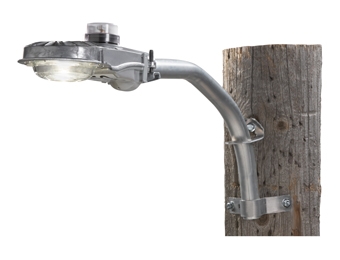Cree, Inc. (Nasdaq: CREE) introduces the LED Rural Utility Light (RUL) Series, designed to deliver an unprecedented combination of price, performance and quality to accelerate adoption of LED lighting across rural areas in North America. The first of Cree’s innovative outdoor LED luminaires to address the estimated 10 to 13 million rural street and area light fixtures installed, the new RUL Series delivers a better, more affordable lighting experience for residential roadways, security, storage and loading areas with game-changing efficacy, rapid payback of less than one year* and Cree’s industry-leading ten-year warranty.
“The RUL Series exemplifies Cree’s commitment to relentless innovation, resulting in another uncompromising LED luminaire that challenges long-established assumptions for what’s possible in lighting, while lowering the cost of ownership,” said Norbert Hiller, Cree executive vice president, lighting. “By providing unmatched performance and price, the RUL Series improves the value of LED lighting for our customers and enables municipalities and utilities to take advantage of Cree’s best-in-class solutions for all of their outdoor lighting needs.”
Featuring elements of Cree’s groundbreaking SC5 Technology™ Platform, the Cree® LED Rural Utility Light outperforms incumbent high-pressure sodium (HPS) and mercury-vapor (MV) technology, as well as competing LED products, to provide unrivaled 110 lumens-per-watt efficacy and system-level performance for expedient payback and reduced cost of ownership for municipalities and utilities. Featuring a light-weight design, tool-less entry and straight-in wiring, the 4000-K color temperature Cree LED Rural Utility Lights enables seamless installation in addition to long-term maintenance savings over the 100,000-hour-rated lifetime.
The RUL Series is sold through Cree lighting sales channels throughout the United States and Canada. Please visit www.cree.com/lighting/RULseries to learn more.
* Payback compared to 175-watt mercury-vapor luminaire and based on usage of 12 hours per day and the national average of $0.11 per kWh electric costs.











